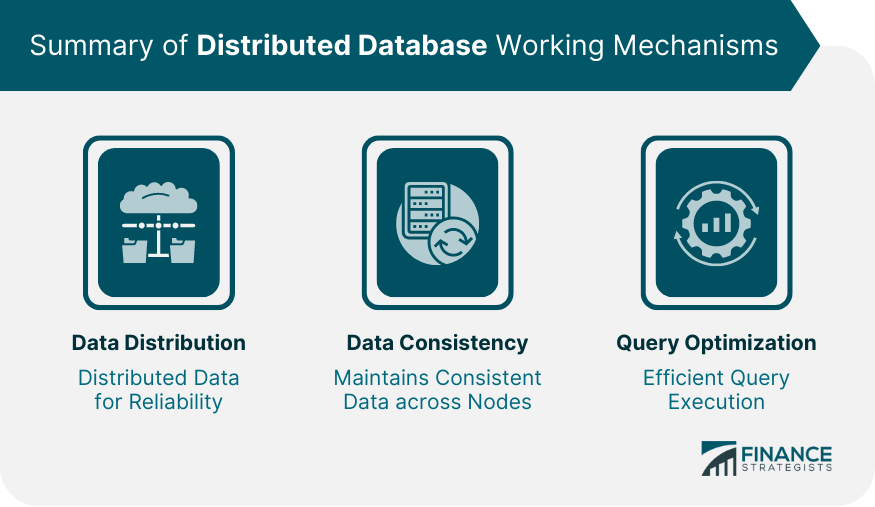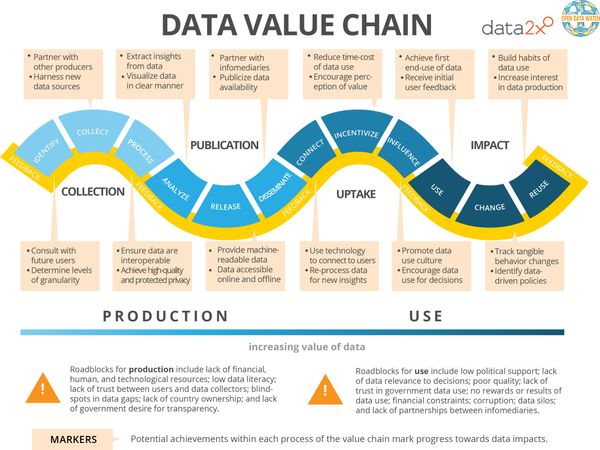Overview
The Importance of Data, Analytics, and Cloud in Business
The importance of data, analytics, and cloud in business cannot be overstated. In today’s digital age, businesses generate vast amounts of data, and harnessing this data is crucial for making informed decisions and gaining a competitive edge. Data allows businesses to understand customer behavior, identify trends, and uncover valuable insights. Analytics, on the other hand, enables businesses to analyze and interpret this data, providing valuable insights that can drive strategic decision-making. Cloud technology plays a vital role in this process, providing a scalable and secure platform for storing and processing large volumes of data. Additionally, the cloud allows for easy access to data and analytics tools from anywhere, making collaboration and decision-making more efficient. In order to fully leverage the power of data, analytics, and cloud, businesses should invest in database tuning to optimize the performance and efficiency of their data storage and processing systems.
Benefits of Leveraging Data, Analytics, and Cloud
The future of business lies in leveraging data, analytics, and cloud technologies. By harnessing the power of these tools, organizations can gain valuable insights, make data-driven decisions, and drive innovation. Data enables businesses to understand customer behavior, identify trends, and predict future outcomes. Analytics provides the means to analyze and interpret data, uncovering patterns and correlations that can inform strategic initiatives. Cloud technology offers scalability, flexibility, and cost-efficiency, allowing businesses to store and process large volumes of data securely. Together, these three elements form a powerful combination that can unlock the full potential of businesses, enabling them to stay competitive and thrive in the digital age.
Challenges in Implementing Data, Analytics, and Cloud Solutions
Implementing data, analytics, and cloud solutions presents several challenges that businesses must overcome. One of the main challenges is integrating these new technologies into existing systems. Many businesses already have established systems in place, and incorporating data, analytics, and cloud solutions can disrupt these systems and require significant changes. Additionally, compatibility issues may arise when trying to connect different systems together. Ensuring seamless integration and interoperability between various systems is crucial for successful implementation. Another challenge is the need for skilled professionals who can effectively utilize and manage these technologies. Data, analytics, and cloud solutions require specialized knowledge and expertise, and businesses may face difficulties in finding and retaining qualified personnel. Overcoming these challenges is essential for businesses to unlock the full potential of data, analytics, and cloud in driving growth and innovation.
Data-driven Decision Making

Collecting and Analyzing Data for Informed Decision Making
Collecting and analyzing data is crucial for making informed decisions in today’s business landscape. By leveraging advanced data collection techniques and powerful analytics tools, businesses can gain valuable insights into their operations, customer behavior, and market trends. One key aspect of this process is database optimization, which involves fine-tuning the performance and efficiency of data storage and retrieval systems. Database optimization ensures that data is organized, indexed, and accessed in the most efficient manner, enabling faster query response times and improved overall system performance. With optimized databases, businesses can extract actionable insights from their data in real-time, empowering them to make data-driven decisions that drive growth and success.
Using Predictive Analytics to Drive Business Strategy
Using predictive analytics to drive business strategy is crucial in today’s data-driven world. By leveraging the power of data and advanced analytics techniques, businesses can gain valuable insights into customer behavior, market trends, and operational efficiency. This enables them to make informed decisions and take proactive measures to unlock their full business potential. With the help of predictive analytics, organizations can identify opportunities for growth, optimize resource allocation, and mitigate risks. By harnessing the power of data, analytics, and cloud technologies, businesses can stay ahead of the competition and drive sustainable growth.
Leveraging Cloud Platforms for Data Storage and Processing
Leveraging cloud platforms for data storage and processing has become essential in today’s data-driven business landscape. With the increasing volume and complexity of data, businesses need scalable and secure solutions to store and analyze their data. Cloud platforms offer the flexibility and agility required to handle large datasets and perform complex data processing tasks. By harnessing the power of the cloud, businesses can unlock the full potential of their data and make informed, data-driven decisions. Data-driven decision making enables businesses to gain valuable insights, identify patterns, and make strategic choices based on data analysis. With the ability to store, process, and analyze data in the cloud, businesses can leverage advanced analytics and machine learning algorithms to drive innovation and stay competitive in the digital age.
Enhancing Customer Experience

Personalizing Customer Interactions with Data and Analytics
Personalizing customer interactions with data and analytics is crucial for businesses in today’s digital age. By leveraging the power of data, businesses can gain valuable insights into their customers’ preferences, behaviors, and needs. This allows them to create personalized experiences that drive customer satisfaction and loyalty. One key aspect of personalization is database performance optimization. By optimizing database performance, businesses can ensure that customer data is processed and retrieved efficiently, enabling faster response times and improved user experiences. With the right data analytics tools and techniques, businesses can unlock the full potential of their customer data and deliver personalized interactions that drive business growth.
Leveraging Cloud-based CRM Systems for Improved Customer Service
Leveraging cloud-based CRM systems for improved customer service has become increasingly crucial in today’s business landscape. With the rapid advancement of technology, businesses are constantly seeking ways to enhance their customer service capabilities. Cloud-based CRM systems offer a range of benefits, including real-time access to customer data, streamlined communication channels, and improved collaboration among teams. By utilizing these systems, businesses can gain valuable insights into customer behavior, preferences, and needs, enabling them to deliver personalized and efficient service. Furthermore, cloud-based CRM systems provide scalability and flexibility, allowing businesses to adapt to changing customer demands and market trends. Overall, leveraging cloud-based CRM systems is essential for businesses looking to optimize their customer service operations and unlock their full potential.
Using Data Analytics to Identify Customer Needs and Preferences
Data analytics is a powerful tool for businesses to gain insights into customer needs and preferences. By analyzing large volumes of data, businesses can uncover patterns and trends that can help them identify what customers want and how they can best meet those needs. This valuable information can then be used to develop targeted marketing strategies, improve product offerings, and enhance overall customer satisfaction. By leveraging data analytics, businesses can maximize their efficiency and make data-driven decisions that drive success.
Optimizing Operations
Streamlining Processes with Data-driven Insights
Streamlining processes with data-driven insights is crucial for businesses looking to stay competitive in today’s digital age. By leveraging the cloud potential in the Czech Republic, companies can access vast amounts of data and utilize advanced analytics tools to gain valuable insights. These insights can help identify inefficiencies, optimize operations, and make data-driven decisions that drive business growth. With the power of the cloud, businesses can streamline their processes, improve productivity, and achieve greater operational efficiency. By harnessing the power of data and analytics, businesses can unlock their full potential and gain a competitive edge in the market.
Implementing Cloud-based Solutions for Efficient Operations
Implementing cloud-based solutions can greatly improve database performance and enhance overall operational efficiency. By leveraging the power of the cloud, businesses can optimize their data storage and processing capabilities, resulting in faster and more reliable access to critical information. Cloud-based solutions also offer scalability, allowing businesses to easily accommodate growing data volumes and adapt to changing business needs. With improved database performance, businesses can make better-informed decisions, streamline operations, and gain a competitive edge in the market.
Using Analytics to Identify Areas for Improvement and Cost Reduction
Using analytics to identify areas for improvement and cost reduction is crucial for businesses looking to unlock their full potential. By leveraging data and analytics, companies can gain valuable insights into their operations and make informed decisions to drive growth and efficiency. One area where analytics can be particularly useful is in optimizing database performance. By analyzing data patterns and identifying bottlenecks, businesses can identify areas for improvement and implement strategies to enhance the speed and efficiency of their databases. This not only improves overall performance but also reduces costs associated with maintenance and downtime. With the power of analytics, businesses can unlock the full potential of their data and drive success.
Ensuring Data Security and Privacy

Implementing Robust Data Security Measures in the Cloud
Implementing robust data security measures in the cloud is crucial for businesses that are digitalising with SaaS. With the increasing reliance on cloud-based solutions, it is important to ensure that sensitive data is protected from unauthorized access and potential security breaches. By implementing robust data security measures, businesses can safeguard their valuable data and maintain the trust of their customers. This includes implementing strong encryption protocols, regularly updating security patches, and conducting regular security audits. Additionally, businesses should also educate their employees on best practices for data security and provide them with the necessary tools and resources to securely handle and store data in the cloud.
Ensuring Compliance with Data Privacy Regulations
Ensuring compliance with data privacy regulations is crucial for businesses today. With the increasing importance of data in driving business decisions and strategies, organizations must prioritize the protection and privacy of their data assets. Data availability is a key aspect of data privacy regulations, ensuring that data is accessible to authorized individuals while being protected from unauthorized access or misuse. By implementing robust data privacy measures, businesses can establish trust with their customers and stakeholders, demonstrating their commitment to safeguarding sensitive information. Compliance with data privacy regulations also helps businesses avoid legal and financial repercussions, as non-compliance can result in hefty fines and reputational damage. Therefore, organizations must invest in advanced data protection technologies and practices to ensure data availability and maintain compliance with data privacy regulations.
Leveraging Analytics to Detect and Prevent Data Breaches
Data breaches have become a major concern for businesses, with cyber attacks on the rise. Leveraging analytics is crucial in detecting and preventing these breaches. By analyzing large volumes of data, businesses can identify patterns and anomalies that indicate potential security threats. Analytics can also help in the manipulation and optimization of data to enhance security measures. With advanced analytics tools and technologies, businesses can stay one step ahead of cybercriminals and safeguard their valuable data.
Conclusion

The Future of Business: Data, Analytics, and Cloud
The future of business is being shaped by the transformative power of data, analytics, and cloud technology. As organizations strive to stay competitive in a rapidly evolving digital landscape, leveraging these three pillars has become essential. One key area where data, analytics, and cloud are revolutionizing business operations is query optimization. Query optimization is the process of improving the efficiency and performance of database queries, enabling organizations to extract valuable insights from their data faster and more effectively. By harnessing the power of data, analytics, and cloud technology, businesses can unlock the full potential of their data and gain a competitive edge in today’s data-driven world.
Key Takeaways for Unlocking Business Potential
Unlocking business potential requires effective data management procedures. By implementing robust data management procedures, businesses can ensure the accuracy, reliability, and security of their data. This enables them to make informed decisions based on reliable information. Additionally, efficient data management procedures streamline processes and improve productivity, allowing businesses to maximize their potential. By leveraging data analytics and cloud technologies, businesses can gain valuable insights, identify trends, and make data-driven decisions. The combination of data, analytics, and cloud empowers businesses to unlock new opportunities and drive growth.
Embracing the Power of Data, Analytics, and Cloud
Embracing the Power of Data, Analytics, and Cloud
The Universal Semantic Layer Key is a crucial component in unlocking the business potential with data, analytics, and cloud. It acts as a bridge between different data sources, enabling seamless integration and analysis. With the Universal Semantic Layer Key, organizations can gain valuable insights and make data-driven decisions with ease. This powerful tool allows businesses to harness the full potential of their data, unleashing new opportunities for growth and innovation. By embracing the power of data, analytics, and cloud, businesses can stay ahead in today’s competitive landscape and drive success.
In conclusion, OptimizDBA Database Optimization Consulting is the trusted industry leader in remote DBA services since 2001. With over 500 clients, we guarantee a significant increase in performance, experiencing transaction speeds that are at least twice as fast as before. Our average speeds are often 100 times, 1000 times, or even higher! If you’re looking to optimize your database and improve its performance, look no further than OptimizDBA. Visit our website to learn more about our services and how we can help you achieve faster transaction speeds.







